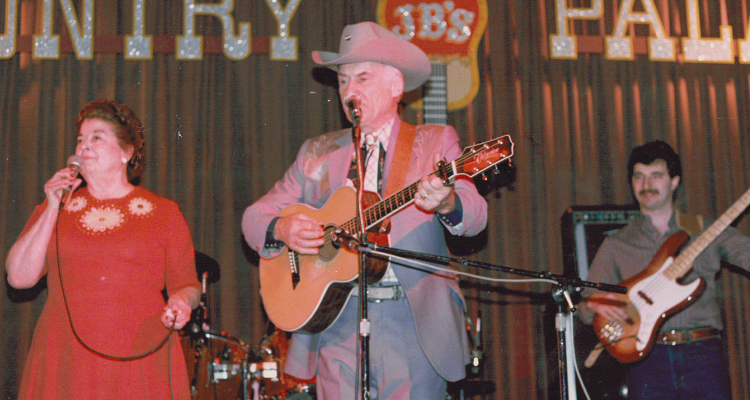Author’s note: Much of the information in this two-part article is sourced from Doc Williams’ own accounts of his life in his biography, “A Country Music Legend — Doc Williams — Looking Back.” (Published by James Thorton: Creative Impressions.) Thank you to Doc and Chickie’s daughter, Barbara Smik, who was also the editor of her father’s biography, for allowing the use of this book as reference, the access to so many incredible photos and for being a wealth of knowledge for this article. We hope this article will inspire you to re-listen to Doc and Chickie Williams’ brilliant recordings and learn more about their lives through this book or other sources.
“A cheery hello from the rockbound coast of Maine to sunny Florida and to our good friends up north of the border in Canada,” said Doc Williams on many occasions to his radio listeners when he approached the mic.
Doc and Chickie Williams brought greetings from Wheeling to a large portion of the United States and Canada. Capitalizing upon the extensive reach of the WWVA airwaves, the couple’s successful tours did indeed bring them to fans along the Atlantic coast of New England, across Canada and many other areas.
As a result, they were ambassadors for Wheeling and West Virginia. Those who will never visit the region know the area because of the music of Doc and Chickie Williams.
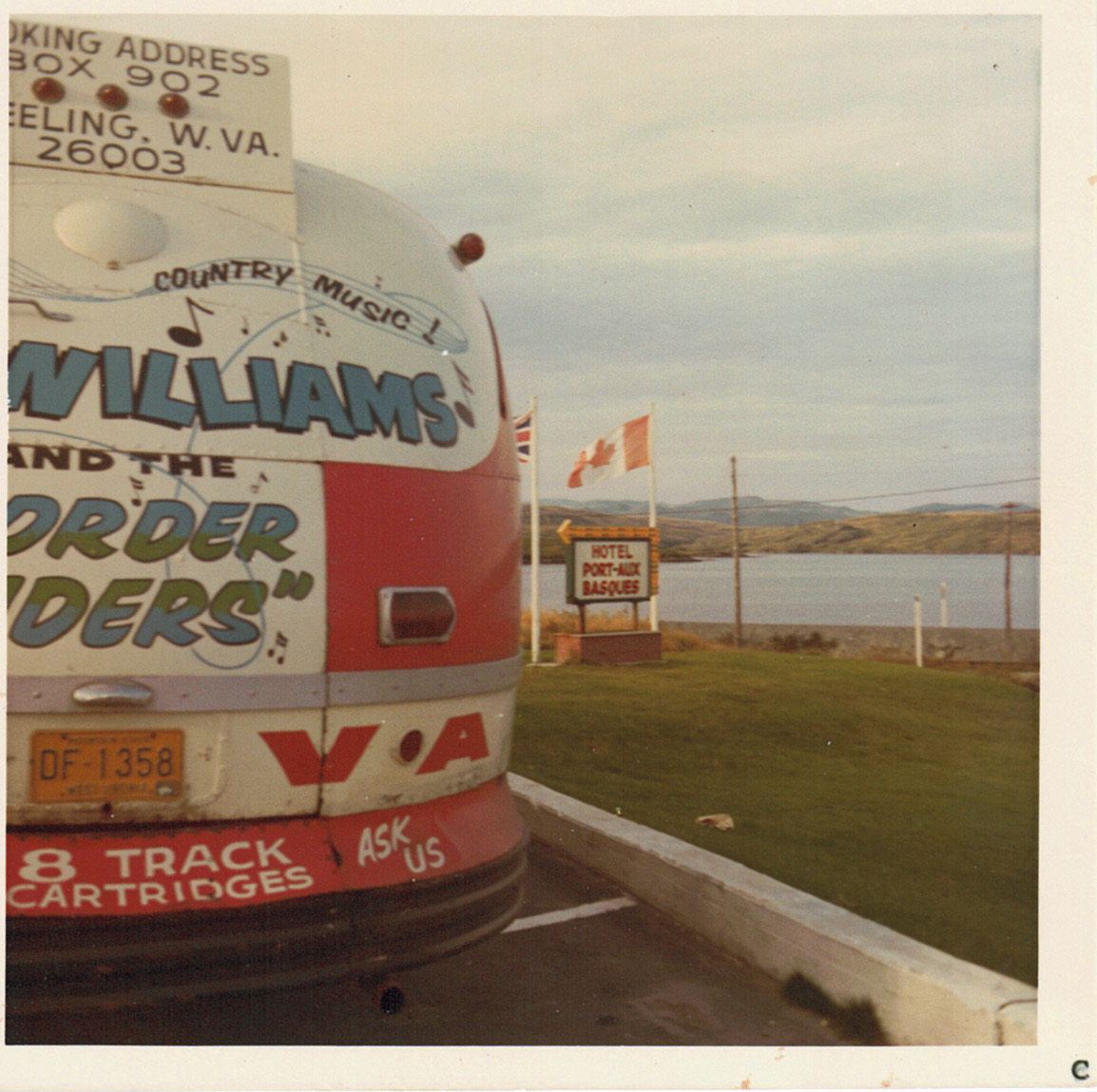
INSIDE THE STAGE DOOR
If you step inside the stage door, you’ll see more than just the incredible stage persona that was vital to the development of country music. You will see Doc as an incredible businessman with a relentless spirit. You will see Chickie as a female country music pioneer and a loving matriarch of the family.
In a recent statement to Weelunk, Ketch Secor — of the Grand Ole Opry member and multi-GRAMMY Award-winning band Old Crow Medicine Show — recognized the Wheeling legends. Secor is also the host of the online COVID-19 streaming show, Heartland Hootenanny, which pays tribute to many traditional artists.
“Doc and Chickie Williams display the best of West Virginia musicians’ nearly instinctive ability to make national those regional folk traditions instilled in them,” Secor told Weelunk. “By branching out from the opportunities afforded by their success on the [World’s Original WWVA] Wheeling Jamboree, the Williams showed a pioneering spirit in a burgeoning mid-20th century hillbilly music economy, thus forging a new link in the musical chain, and further solidifying the premiere place that West Virginians hold in the authorship of the country music story.”
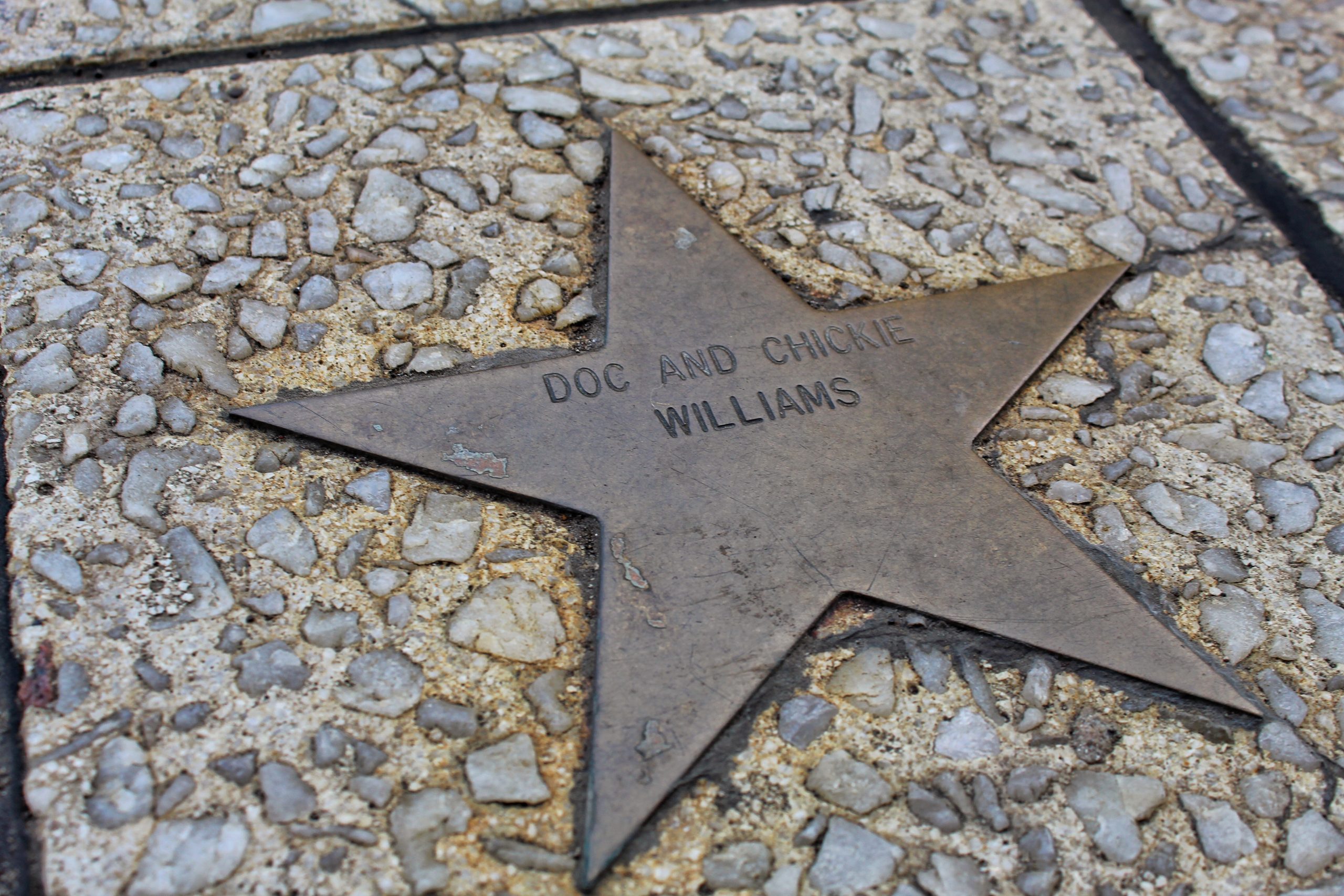
The statement by Secor is validation of the incredible broad and lasting impact of Doc and Chickie Williams. Old Crow Medicine Show received the Recording Industry Association of America’s Double-Platinum Certification for selling over 2 million copies of their signature single, Wagon Wheel, and their debut album, O.C.M.S., has been certified Gold with 500,000 copies sold. This successful next generation of musicians is continuing the musical traditions that Doc and Chickie started decades ago in Wheeling.
A FEMALE COUNTRY MUSIC PIONEER IN THE FRIENDLY CITY
If you search for the song Beyond the Sunset online, the result you’ll likely first find is the Hank Williams’ version released on the 1950 album, Hank Williams as Luke the Drifter.
Bob Dylan said in his autobiography Chronicles: Volume One, “The Luke the Drifter record, I just wore out … I could listen to the Luke the Drifter record all day and drift away myself, become convinced in the goodness of man.”
However, before Hank Williams would record his version of this song at Castle Studio in Nashville, a 28-year-old female artist from West Virginia would record the song in Cleveland, Ohio, between Christmas and New Year’s Eve in 1947.
This is the story of Beyond the Sunset’s recording: Maxine and Eileen Newcomer were blind twin singers in Wheeling and billed as “Radio’s Only Blind Twins.” Chickie Williams was very fond of the sisters and would visit them at their North Wheeling home, where they had their own “disc cutter.” It was at this home that she would record a poem called Should You Go First and I Remain. The poem was written by longtime voice of the Pittsburgh Pirates, Albert Kennedy “Rosey” Rowswell. The recitation would be a gift to Doc from Chickie on their anniversary.
Doc and Chickie’s secretary, Jean Miller, heard Chickie’s recording of the poem and brought in a classic hymn titled Beyond the Sunset. She suggested to them that it would be perfect for Chickie to record in combination with the poem.
In 1947, during a landmark recording session in Cleveland, the young couple recorded multiple songs. It was here that Chickie made the recording of Beyond the Sunset. This was country music history — even if the recording industry wasn’t watching.
In an interview with WWVU-TV in 1976, Doc Williams admits that they initially had difficulty getting existing record labels to take notice of Chickie’s recording —possibly because of the recitation or the fact that it included a hymn. However, the couple knew they had a hit and took matters into their own hands.
They put their entire savings into the recording and released the album themselves on their own label — Wheeling Records. They invested in 1,500 78-rpm records.
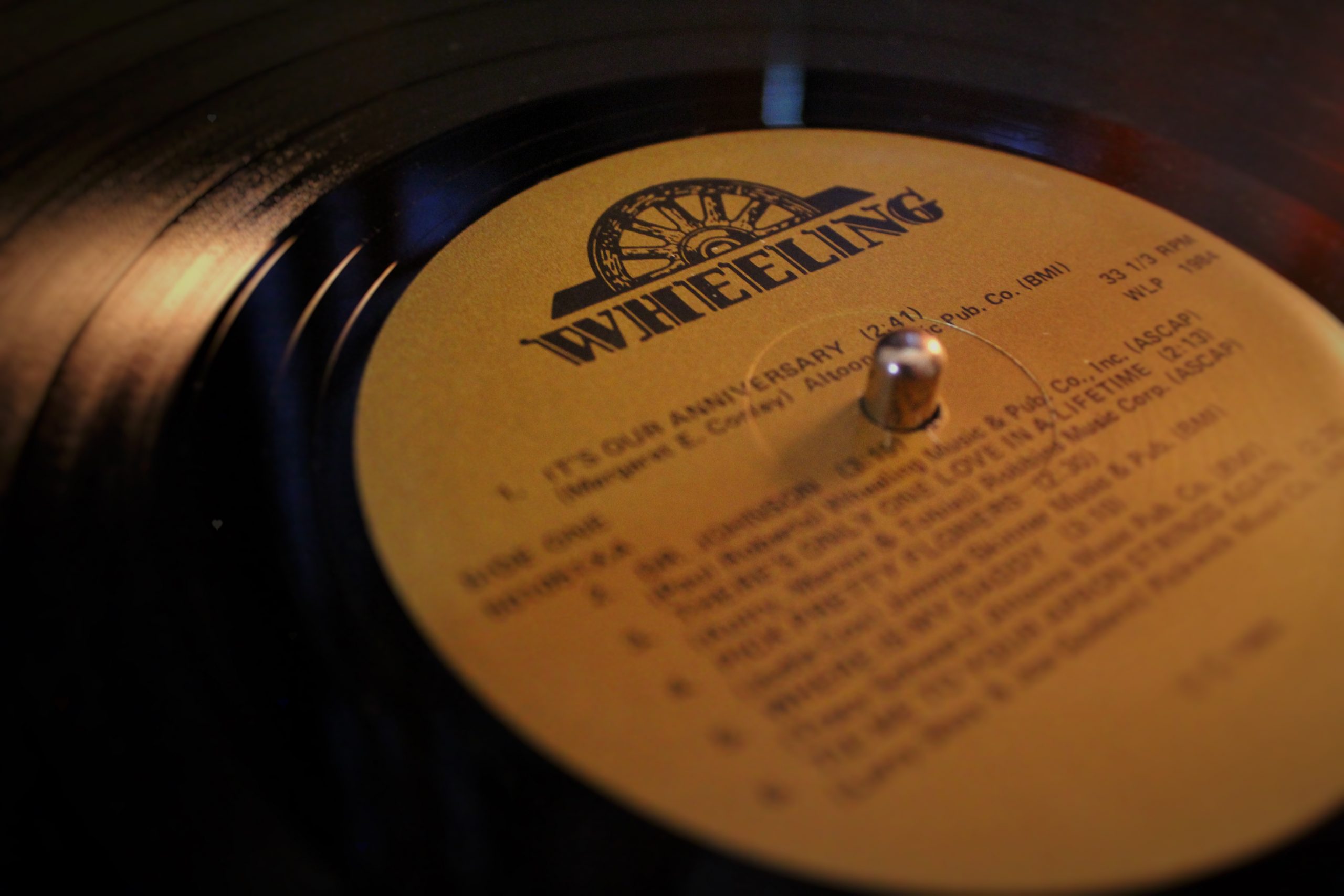
In his biography, Doc Williams relates that Rosalie Allen, a disc jockey in New York City, told him she played the song once, and the switchboard “lit up like a Christmas tree for an hour and a half.”
Chickie Williams’ recording of Beyond the Sunset was a No. 3 hit when released in 1948.
However, there was a problem. One distributor purchased all 1,500 78-rpm records they had invested in because the song was so successful. They were sold out, and there was more demand for the recording. Unfortunately, producing more albums in a short period of time to distribute was impossible.
Chickie would receive offers to release the song with other labels, including Mercury and Decca records — two major labels at the time. An agreement with one record label did allow for the distribution of the record in subsequent years.
Decca proposed that Doc Williams re-record the song with his wife, which would allow him to break the previous agreement with another company. However, he said, “… this is my wife’s record, and I don’t want to cut in on her.” Always devoted he said, “This strictly was something that should belong to Chickie.”
Following the success of Beyond the Sunset, Chickie was offered the opportunity to book dates in nightclubs and cruise boats. She likely could have had additional success as a featured or solo performer. However, this was not the life that Chickie wanted for herself or her family.
Chickie Williams toured devotedly alongside Doc, performing for their fans for decades. In his biography, Doc jokes that a gig — filling in for another performer — that was only supposed to be a few weeks for Chickie, turned into a 52-year career.
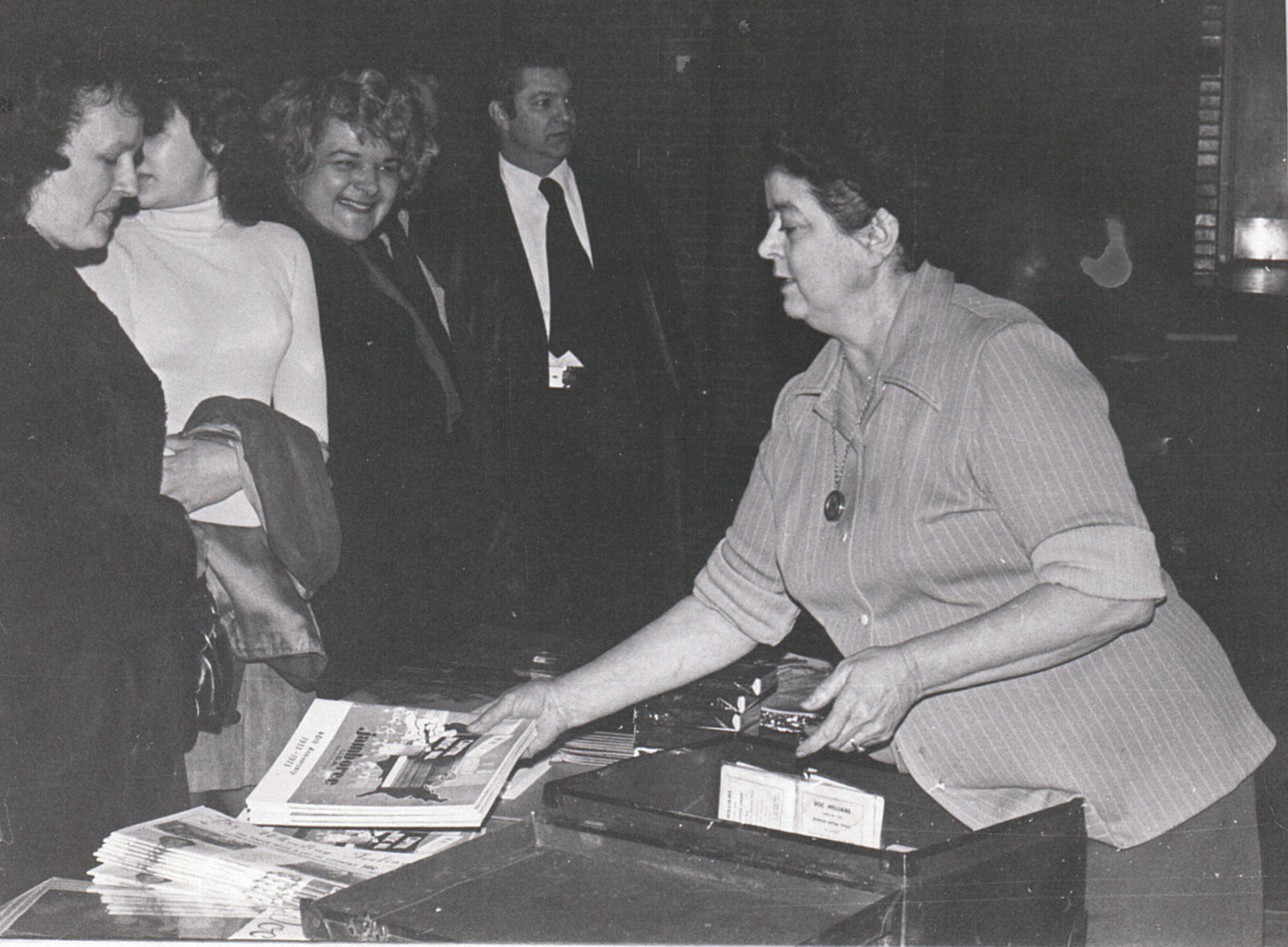
As the years passed, the loving matriarch of the family was happy to be at home with the family’s three daughters — Barbara, Madeline and Karen.
“She spoiled us when she was home and made sure we had great memories of the time we spent together,” remembered daughter Barbara Smik in a previous interview with Weelunk. (WOMEN IN HISTORY: These Wheeling Women Made Music History)
“She would always bring us something from wherever they were. She even once brought home a German Shepherd — Bobby,” remembered Smik. “Both my parents loved dogs. We always had rescue pets.”
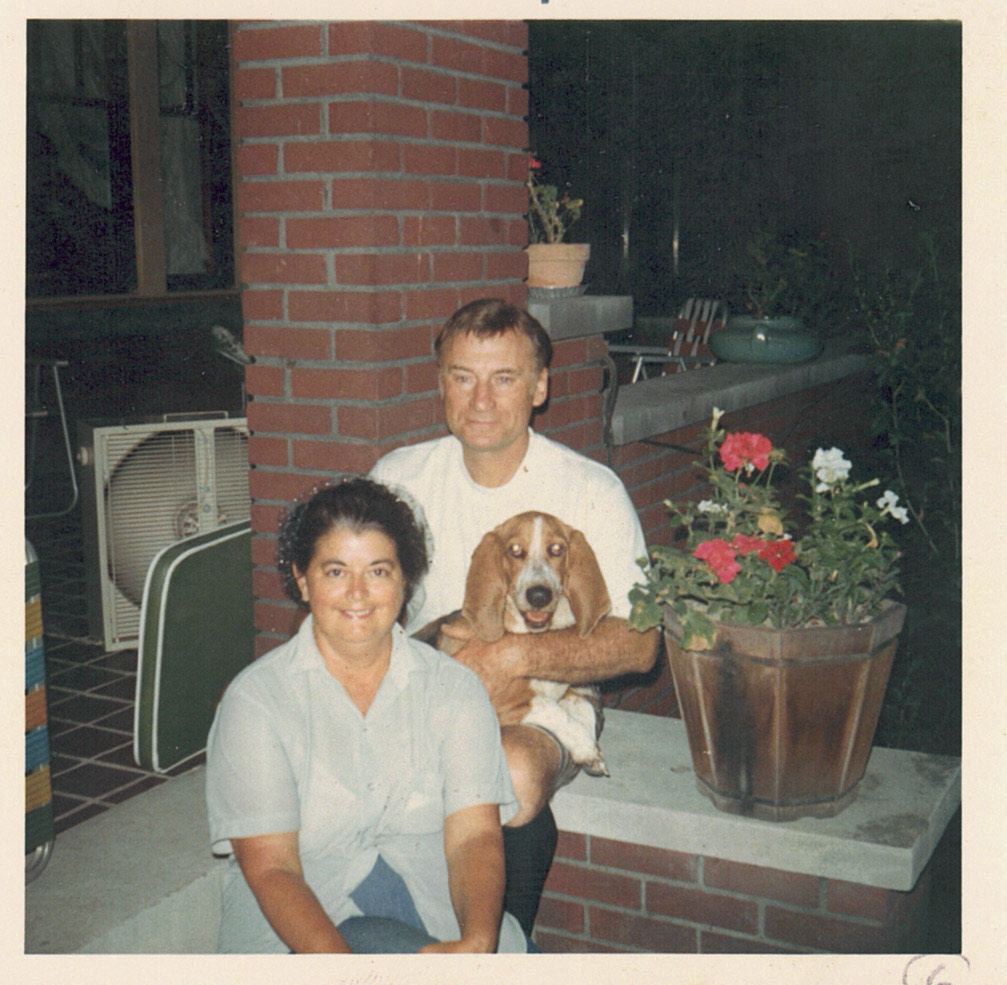
At the time this story about Chickie was written, Gabby Barrett’s single, I Hope, was No. 1 on the Billboard Hot Country Charts. Barrett is from Munhall, Pennsylvania — about 65 miles from Wheeling. In 2015, early on a Sunday morning, Barrett opened Jamboree In The Hills, an event that Doc and Chickie Williams were very familiar with in the early days. Since then, Barrett has gone on to finish third on American Idol Season 16.
Sadly, currently only about 25 percent of the artists on the Billboard Hot Country Top 20 Charts are female performers. Although today’s country music is undeniably different, it was female pioneers of country music’s past, such as Chickie Williams, who paved the way for today’s existing female country performers.
Although she always remained humble, kind, and devoted to Doc’s career and their family, Chickie Williams helped to break down doors for female artists of the future like Gabby Barrett and many others. The impact of her career and music will always live on.
Part 2 tomorrow.
• Kyle Knox, born and raised in Marshall County, West Virginia, is a long-time events industry professional with years of experience working at various venues and events throughout the tri-state area, including The Capitol Theatre, WesBanco Arena, Jamboree In The Hills, Heritage Music BluesFest and the Wheeling Symphony. Before returning to the Wheeling area, Kyle also worked in the events industry in Pittsburgh. Kyle is passionate about music, Appalachian history and culture, nature and local sustainable foods. He is a 2013 graduate of West Liberty University and became a contributing writer for Weelunk in 2020.


